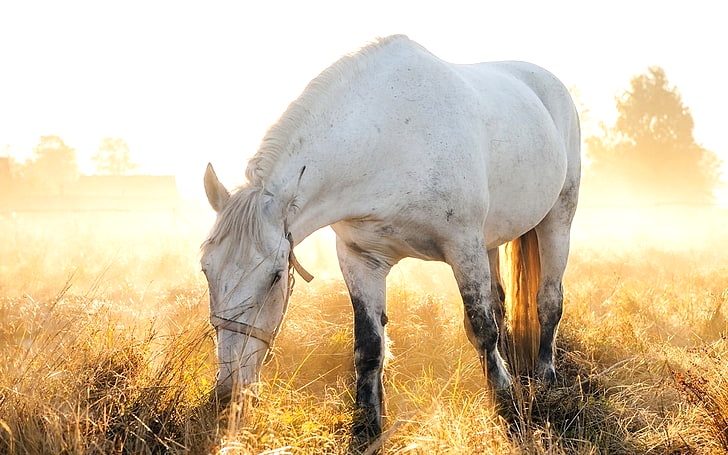Horses have a unique way of communicating with us, from subtle body language to more direct approaches. One of the more subtle ways that a horse may communicate is by turning his back on you. But what does this mean?
Understanding Horse Body Language
In order to understand why a horse might turn his back on you, it is important to understand the basics of horse body language. Horses use a variety of non-verbal cues to communicate with each other and with us. These cues are used to identify emotions and intentions, and can even tell us how a horse is feeling.
Some of the most common horse body language cues include ear position, head position, tail position, and stance. When a horse turns his back on you, it is important to take a look at all of these cues to gain a better understanding of what the horse is trying to tell you.
When a Horse Turns His Back on You
There are several possible explanations for why a horse might turn his back on you. The most common explanation is that the horse is feeling uneasy or uncomfortable in your presence. This could be due to a variety of reasons, such as if the horse is feeling threatened or scared.
Another possible explanation is that the horse is trying to avoid being ridden. If the horse turns his back when you approach him or try to put a saddle on him, this could be a sign that he does not want to be ridden.
It is also possible that the horse is trying to tell you that he is ready to go home. Horses can become bored with their environment, and will sometimes turn their backs when they are ready to go back to the barn or stable.
Finally, the horse may be trying to communicate a more specific message. Horses have a variety of ways to communicate with us, and turning his back may be a way for the horse to tell you that he is tired, sore, or needs more attention.
Determining the Reason
The best way to determine why a horse has turned his back on you is to assess the situation and take a look at all of the body language cues that the horse is displaying. If the horse is displaying any signs of fear or aggression, then it may be best to leave the horse alone and let him calm down before approaching him again.
If the horse is displaying signs of boredom or fatigue, then it may be best to give him some time to rest or to provide him with a change of scenery. Finally, if the horse is displaying signs of wanting more attention or affection, then it may be best to give him some extra love and care.
Conclusion
Understanding why a horse has turned his back on you can be a difficult task. However, it is important to take the time to assess the situation and look for any cues in the horse’s body language that may help you to determine the reason. With patience and understanding, you and your horse can develop a better understanding of each other and build a strong bond.



